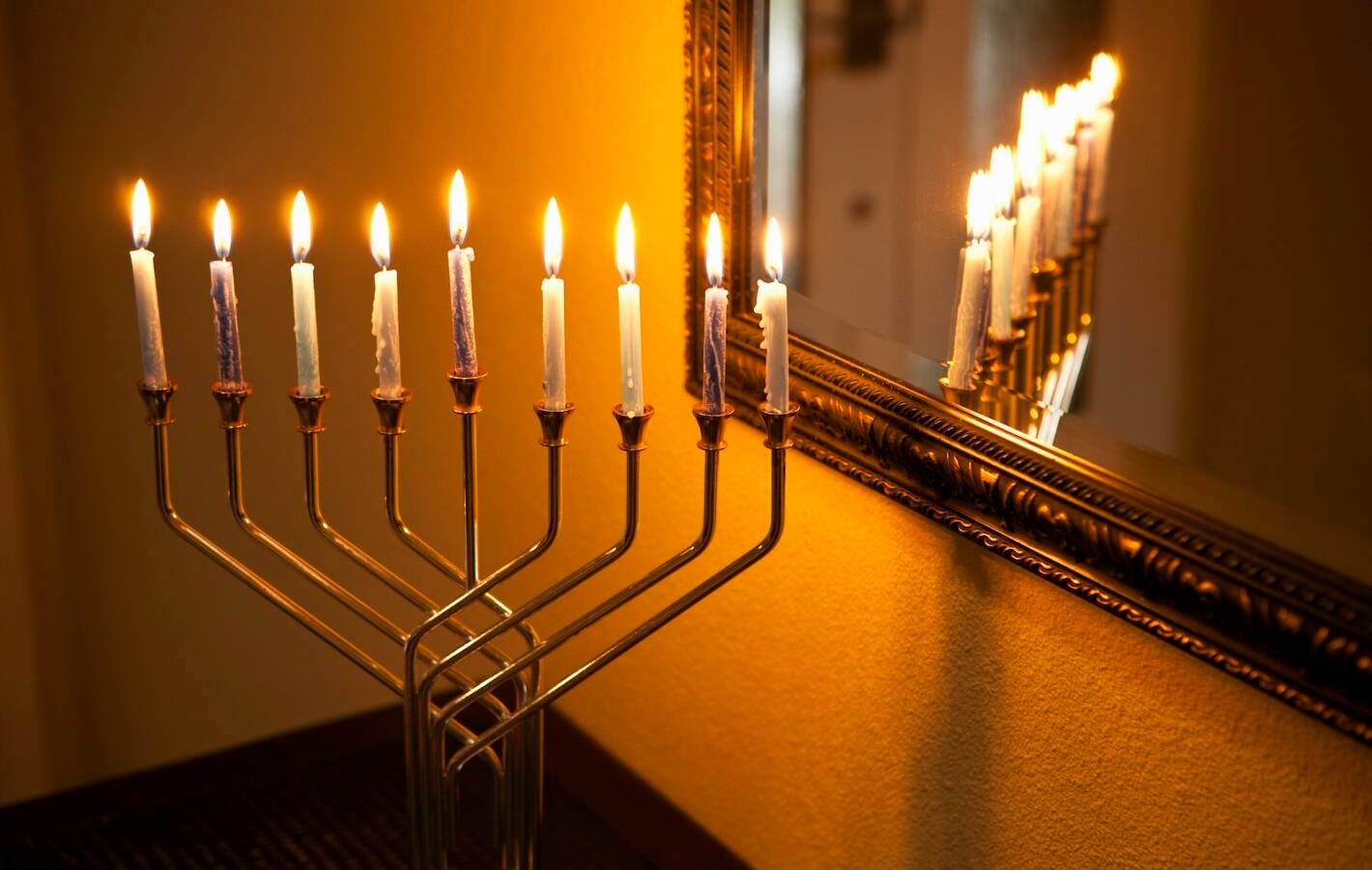It’s Hanukkah, which means it’s the season to tell and retell the story of the Maccabees’ stunning victory over the Greeks and the miracle of the oil that burned for eight days. We’ve heard this narrative a million times and know it well.
Or do we?
There are actually two versions of the story we tell about Hanukkah, each with distinct sources tracing back to ancient times.
One version is preserved in the Al Hanisim prayer that we recite every day of the holiday. In that version, the Hasmoneans launched a successful rebellion against the Greeks, who had sought to prevent the Jewish people from practicing their religion. With their miraculous victory, the Hasmoneans restored the Temple and established an eight-day holiday of praise and thanksgiving.

Help us keep Jewish knowledge accessible to millions of people around the world.
Your donation to My Jewish Learning fuels endless journeys of Jewish discovery. With your help, My Jewish Learning can continue to provide nonstop opportunities for learning, connection and growth.
A very different version of the story is offered by the Talmud (Shabbat 21b), which teaches as follows:
When the Greeks entered the sanctuary they defiled all the oils that were in the sanctuary. And when the Hasmonean monarchy overcame them and emerged victorious over them, they searched and found only one cruse of oil that was placed with the seal of the high priest. And there was sufficient oil to light the candelabrum for only one day. A miracle occurred and they lit the candelabrum from it eight days. The next year the sages instituted those days and made them holidays with recitation of Hallel and thanksgiving.
The Talmud’s account leaves out all the details of persecution and war and focuses instead on the miracle of the fire. It also provides a reason for why Hanukkah is celebrated for eight days. If the military victory were the reason for Hanukkah, why should the holiday be as long as it is?
To answer that, we can look to 2 Maccabees, an ancient Jewish scripture that was not included as part of the canonical text of the Hebrew Bible. There we find another telling of the military campaign against the Greeks that includes the following: “The Jews celebrated joyfully for eight days as on the feast of Sukkot, remembering how, a little while before, they had spent the feast of Sukkot living like wild animals in the mountains and in caves.”
During the battle with the Greeks, the Jews were unable to properly celebrate Sukkot because they were busy hiding and fighting a war. So after the rededication of the Temple, the Jews celebrated for eight days to make up for the eight-day holiday they had missed.
This explanation has the additional benefit of providing an answer to a famous question posed by Rabbi Joseph Karo, the author of the Shulchan Aruch: If Hanukkah is celebrated in memory of the miracle of the oil, why is it celebrated for eight days rather than seven? The oil should have burned for one day. Only the seven additional days were a miracle.
Another answer was suggested by Rabbi Menachem ben Solomon Meiri, a medieval Catalan scholar who wrote that the first day of the holiday is celebrated out of thanks for victory in the war, while the remaining days are celebrated due to the seven miraculous days of the candles burning. In a sense, this answer serves to integrate the two stories of Hanukkah by teaching us that we are actually celebrating two miracles: the miracle of the battle and the miracle of the oil.
Whether or not one finds this integration of the two Hanukkah narratives fully satisfying, it’s worth thinking about why both stories are necessary. Why shouldn’t the military victory be a sufficient reason for the holiday? What is added by invoking the miracle of the oil?
One thing the story of the war has going for it is that it’s a classic David versus Goliath narrative, pitting the great Hellenistic empire against a ragtag group led by the Maccabee family. But the mere fact that someone is an underdog doesn’t mean their victory should be celebrated. The significance of the military victory was not just that the Jews won, or even that they won against all odds, but that it presaged a return to the Temple service. It was the restoration of Israel’s religious freedom and its ability to serve God that is the true reason for the celebration of Hanukkah.
We can find a hint of this message in Josephus’ Antiquities of the Jews, in which we writes of Hanukkah: “We observe this festival, which we call the Festival of Lights, giving this name to it, I think, from the fact that the right to worship appeared to us at a time when we hardly dared hope for it.”
This year, let us commemorate not only the military victory, but the very goals of religious expression and worship that the Maccabees fought for. Let us bask in our Hanukkah lights, recalling those of the Temple, that our ancestors risked their lives for in the face of Hellenistic persecution.
This article initially appeared in My Jewish Learning’s Shabbat newsletter Recharge on Dec. 9, 2023. To sign up to receive Recharge each week in your inbox, click here.



